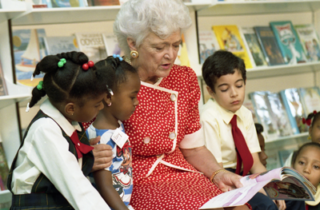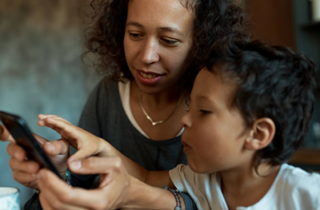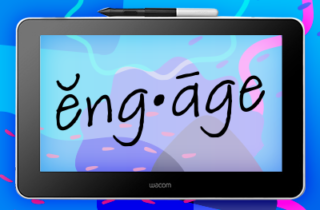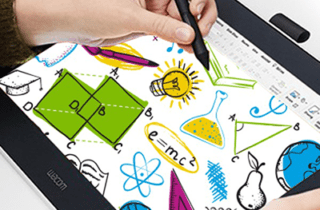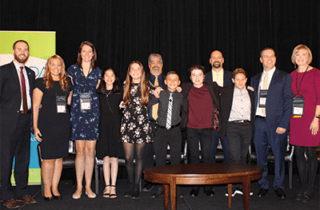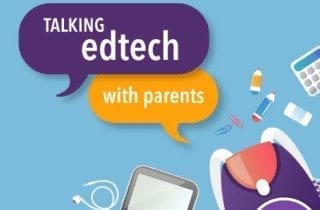Presented by Pamela Cote, Senior Director of Curriculum and Training, Barbara Bush Foundation for Family Literacy; Kristen Walter, US Program Director, Worldreader; and Heather Brinkworth, Technical Program Director, Barbara Bush Foundation for Family Literacy
Presented by Irma Brasseur-Hock, Ph.D., Program Director, University of Kansas Department of Special Education Online Programs, and Assistant Research Professor, University of Kansas Center for Research on Learning; James Basham, Ph.D., Professor, Department of Special Education at the University of Kansas; and Sean Smith, Ph.D., Professor, Department of Special Education at the University of Kansas
Presented by Lisa McManus, Program and Partnership Manager, Worldreader; Kristen Walter, Director, US Programs, Worldreader; and Meredith McKinney, Black Book Project Founder and Community Achieves Program Specialist for the Board of Education for Metro Nashville Public Schools
Presented by Megan Jensen, Director of Literacy Impact, Carnegie Learning; and Heather Sampselle, Director of Professional Learning Design, Literacy, Carnegie Learning
Presented by Akshay Ravikumar, Marketing Lead, Schoolhouse.world; Matt Wu, Program & Partnership Manager, Schoolhouse.world; and Doug Little, Senior Public Relations Director, Wacom Technologies
Presented by Monica Burns, Ed.D., Founder, Curriculum and EdTech Consultant, Class Tech Tips
Presented by John Sowash, EdTech Consultant, Trainer, and Speaker, Sowash Ventures
During a recent edWebinar, Kelli Etheredge, a Director of Teaching and Learning Resources in Mobile, AL, identified key benefits of formative assessment technologies presented by members of the Microsoft Education team. These benefits include being able to accommodate the needs of diverse learners by developing more personalized learning pathways, so that every student can reach a level of success.
In this edWebinar, learn from Superintendent Michael Nagler and Mineola Middle School Principal Andrew Casale how their district leverages digital tools and resources to personalize instruction for each student through design thinking models and project-based learning opportunities.
In this edWebinar, three educators will share their strategies for engaging parents in a different conversation by showing how they use technology to open up a world of opportunities that wouldn’t be possible without digital tools.


